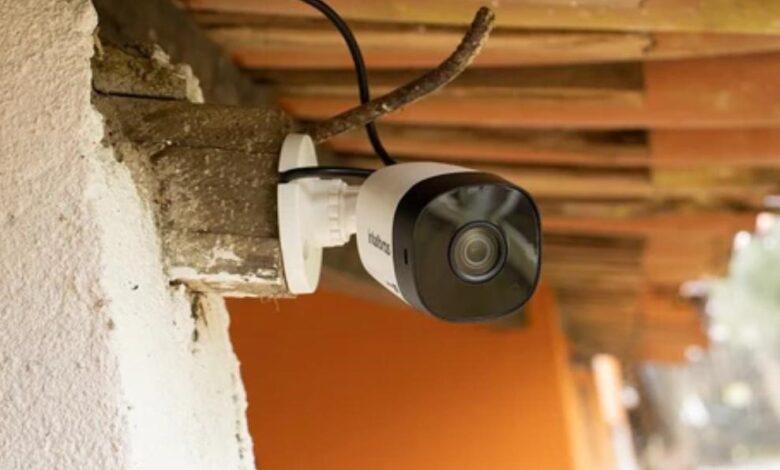How to Stop a Camera From Recording You

Do you ever feel like you’re being watched? With the increasing prevalence of cameras in everyday devices and hidden surveillance, it’s possible that unauthorized recordings may occur without your knowledge or consent. Protecting your privacy is essential, and in this comprehensive guide, we’ll explain how to stop a camera from recording you. From detecting hidden cameras to managing device settings, you’ll learn practical steps to ensure your personal space remains private and secure.
Why Is My Camera Recording Without Permission?
Before taking steps to stop unwanted recordings, it’s important to understand the reasons why your camera might be recording without your permission. The following are common causes that could lead to unauthorized camera access.
Software or App Permissions
Many apps or programs on your devices may request camera access by default, sometimes without you even realizing it. Always review app permissions in your phone or computer settings, and revoke camera access for any apps that don’t need it. By routinely checking these settings, you can prevent unauthorized recording from apps and keep control over your camera’s usage. Regular updates to your device’s operating system can also change these settings, so it’s essential to stay vigilant and recheck permissions periodically.
Malware and Hacking Attempts
Malicious software or hackers can exploit your device’s camera, gaining remote access to record without your knowledge. This is one of the more concerning scenarios, but there are ways to protect yourself. Regularly scan your device—whether it’s a smartphone, tablet, or laptop—with reputable antivirus software to detect and block any potential threats. Ensure your device’s operating system and security software are always up to date. Be cautious when clicking on suspicious links or downloading unknown attachments, as they can install malware that compromises your camera’s security. By taking these preventive measures, you can reduce the chances of your camera being hijacked by hackers.
Manufacturer’s Built-in Settings
Certain devices come with built-in settings that automatically enable the camera, especially after a system update or reset. These settings might turn on your camera for specific functions without your explicit consent. To prevent this, go into your device’s settings and disable any automatic camera activation options. Additionally, check for manufacturer updates or software patches that might address known security vulnerabilities. Understanding your device’s default settings helps you stay one step ahead of unwanted camera use.
How to Detect Hidden Cameras: Key Signs to Watch For
If you suspect there may be hidden cameras recording you without permission, it’s important to know how to detect them. Here are several ways to uncover hidden cameras.
Physical Inspection Methods
Start by conducting a visual inspection of the room or area where you suspect a hidden camera. Pay close attention to small objects that seem out of place or have unnecessary wires attached. Cameras can be hidden in common items such as smoke detectors, alarm clocks, or even wall decorations. Check for any unusual holes or gaps in walls, ceilings, or furniture where a camera lens could be concealed. Don’t forget to inspect light fixtures, air vents, and electronic devices that could easily house small surveillance cameras. A careful physical inspection can often reveal the presence of a hidden camera.
Using Signal Detectors and Apps
Signal detectors are useful tools that can help you locate hidden wireless cameras by detecting the radio frequencies (RF) they transmit. These devices are widely available and relatively easy to use. Alternatively, you can download smartphone apps designed to detect hidden cameras. These apps often work by identifying reflections from camera lenses when a light source—such as your phone’s flashlight—shines directly on them. These detection methods are especially helpful in areas where physical inspection might not be sufficient, such as in large rooms or shared spaces.
Signs of Suspicious Behavior
If you notice strange behaviors around you—such as unusual sounds, clicks, or lights that seem out of place—it could be a sign that a camera is actively recording. Cameras often emit faint sounds or blinking lights, especially in night vision mode, which can be a giveaway. Additionally, if someone in your household or workplace seems overly secretive or is frequently adjusting objects in your environment, it may be a sign they’ve set up hidden surveillance. Always trust your instincts and investigate any suspicious behavior or changes in your surroundings.
How to Stop a Camera From Recording You: Practical Solutions
Once you’ve identified how and why a camera might be recording you, it’s time to take steps to stop it. Here are some practical solutions you can implement.
Disabling Built-in Webcams on Laptops
Disabling your built-in webcam is one of the easiest ways to prevent unauthorized recordings. On most laptops, you can disable the webcam by accessing your device manager or BIOS settings. This effectively deactivates the camera until you choose to enable it again. If you’re not using the camera regularly, this is a simple and effective step to take. For added security, consider disabling the microphone as well, especially if you’re concerned about audio recording.
Using Physical Camera Covers
One of the most foolproof methods to stop a camera from recording you is to use a physical camera cover. These small covers can be easily attached over the camera lens and are designed to slide open or shut as needed. Many companies now offer webcam covers that are both affordable and unobtrusive. This ensures that even if the camera is activated remotely, no footage can be captured. A physical cover provides an immediate and visible layer of protection.
Managing Camera Permissions on Your Device
Managing camera permissions is key to maintaining control over who can access your camera. Regularly review the camera permissions on your smartphone, tablet, or computer by going into your device’s settings. Revoke access to any apps or programs that don’t need to use your camera. This step is particularly important after installing new apps or software, as many automatically request access during installation. By restricting camera permissions to only trusted apps, you can prevent unauthorized recordings.
Disconnecting or Blocking External Cameras
For external cameras connected to your computer or home network, the simplest solution is to disconnect them when not in use. Unplugging the camera or physically storing it in a secure location like a drawer ensures it cannot capture any footage. This is a reliable, straightforward approach to blocking external cameras from recording. If you use the camera only occasionally, this method offers peace of mind between uses, as there is no risk of the camera being turned on without your knowledge.
FAQs: Common Questions on Camera Privacy
Can I Block My Camera Remotely?
Yes, many devices allow you to block your camera remotely by accessing your settings from another device. This can be done through cloud-based services or remote access software. However, physical measures—such as covering the camera lens—offer a more immediate solution. Remote access can be useful in specific situations, but for everyday security, physically preventing the camera from recording is more effective.
Is Covering the Camera Enough?
While covering the camera lens is an effective way to stop visual recordings, it doesn’t address audio capture. To ensure comprehensive privacy, it’s important to disable both the camera and microphone on your device. This can be done through your device’s settings or by using physical covers for both the camera and microphone. Covering both ensures no visual or audio recording occurs without your consent.
What Legal Actions Can I Take Against Unauthorized Recording?
If you believe someone is recording you without permission, you should first communicate your concerns directly. If the issue persists, it may be necessary to consult a legal expert. Unauthorized recording can violate privacy laws, and you may have grounds to file a legal complaint. Knowing your rights and understanding local privacy regulations can help you navigate such situations effectively.

Conclusion
Guarding your privacy from unauthorized recordings is a proactive process that requires awareness and action. By understanding how to stop a camera from recording you, using practical solutions like physical covers, and managing permissions on your devices, you can protect your personal space. Stay vigilant, regularly check your settings, and take steps to secure your devices, ensuring your privacy and security are always maintained.



